
Project time: 2020 – 2023
Budget: 7 800 000 kr
MIDWEST will develop mechanisation solutions for Post-weld treatment methods of welded components.
Locally applied Post-weld treatment methods (PWT) such as TIG remelting and burr-grinding are used (manually) in the manufacturing industry and have been shown to greatly improve the service life of welded structures when applied correctly. The newer HFMI (high frequency mechanical impact) method enable an even better service life improvement and also enables the use of high strength steels in fatigue-loaded components.
However, the manual handling of these PWT methods is time-consuming and requires specially trained personnel. The methods can also have a disadvantage with regard to the working environment (vibrating tools, dust and noise pollution) and have therefore hardly been implemented in the industry. For full benefit and utilization of these methods to a greater extent, full mechanisation is required in combination with reliable quality assurance of the result.
The newly launched MIDWEST project will develop and implement mechanisation solutions for PWT methods of welded components and structures. The ultimate goal is increased fatigue life, improved load capacity and product quality, productivity, reduced scrapping and a more sustainable and efficient production when these PWT methods is fully used in the Swedish automotive and transport industry. The solutions are aimed at wheel loaders and transport vehicles, loaders, forklifts and fatigue-loaded chassis components in cars.
Methods for 3D scanned digital twins for efficient development and installation of production facilities at SMEs
2018 – 2021
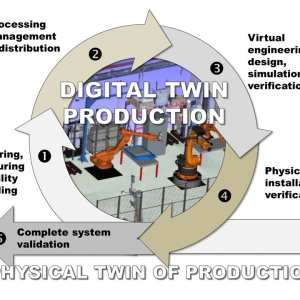
The aim of the ARR project is to develop the potential of automation in repairs and remanufacturing
2018 – 2021
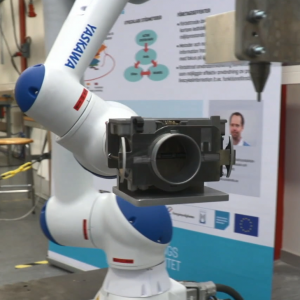
Digi-load focuses on to enhance the competitiveness in the Swedish surface treatment industry through automation and digitalization
2017 – 2020
Maintenance in existing plants is becoming increasingly important, where predictive maintenance has become an emerging technology. The use of decision support tools contributes to environmentally and economically sustainable production. Within this project, different types of digital twins have been designed and evaluated. Specifically, new predictive model types have been tested in two different industrial case studies; a heat exchanger at SSAB and a profiled header at Svenska Fönster AB.
2017 – 2018
A research collaboration between Luleå University of Technology and the company RGS 90 will provide new treatment methods for three common but problematic types of waste.
2015 – 2019
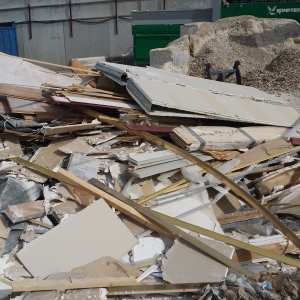
The project's goal is to assist industry enabling sustainable work for operators during assembly of wire harnesses.
2022 – 2025
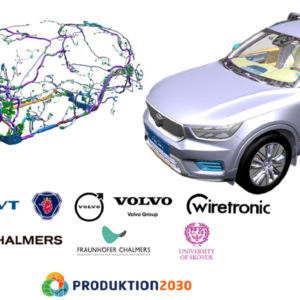
To demonstrate the new technology with robots that enable Swedish companies to develop innovative new products for automated production o maintenance.
2017 – 2020
SCARCE II will develop a demonstrator to show how SMEs and associated value flows can increase efficiency, competitiveness, sustainability and internal collaboration through digitalisation. The goal is to show the value of a new digital solution. SCARCE focuses on two subcontractors in the value chain linked to Scania and Volvo. The demonstrator is a cloud-based solution that connects three test beds in the industry; Stena Industry Innovation Lab, Chalmers, RISE IVF lab, Mölndal and KTH's test bed in Södertälje with the help of Siemens, AFRY, Qbim, Virtual Manufacturing and EQPack.
2020 – 2022
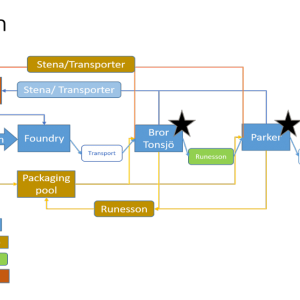
Knowledge is needed that can support design and control of automation in material handling systems.
2019 – 2022
The project aims at radically improving the working environment and the employee security within the heavy manufacturing industries by using and adapting the latest technology for low and ultraprecise positioning and decision support systems. The target is to increase security and safety by adapting the decision-support and positioning system for the heavy manufacturing industries.
2017 – 2018